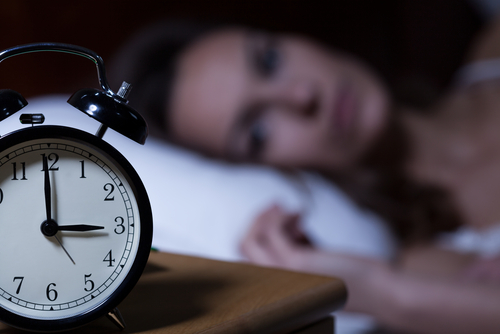What Your Body Does When You Don’t Get Enough Sleep
It’s no secret we’re sleeping less. Our fast-paced lives demand more time, and often that comes at the expense of our sleep. It also should be no surprise that there is a strong correlation between the amount, and more importantly, the quality of sleep we get, and the effect it has on our bodies.
According to the National Sleep Foundation, adults ages 18 to 64 need between 7 and 9 hours of sleep a night. But according to a recent Gallup poll, 40% of Americans are getting less than 7 hours. Less sleep, coupled with potential sleep disorders can create health problems, such as heart disease, high blood pressure, depression, and memory loss.
The good news is that by prioritizing sleep, modifying your schedule, and seeking help from a certified sleep specialist, you can start feeling better almost immediately. This article will explore what happens to your body when you don’t get the quantity or quality of sleep you need, and what you can do to improve your sleep – and your life.

Memory Loss
Your body needs sleep to rest and recharge. Often overlooked when examining the effects of sleep on the body is the toll that sleep deprivation takes on the mind. Insufficient sleep affects your brain’s ability to learn and retain information.
To form memories, three steps must happen:
- Acquisition: acquiring new information
- Consolidation: process of cementing the memory in your brain
- Recall: the ability to recall the memory at a later date
Two of these three functions occur during waking moments, but researchers believe that consolidation of the memory occurs during sleep. During sleep, the brain’s hippocampus reviews events for the neocortex, where memories are processed and stored. When a person does not get enough sleep, this process becomes shortened, not allowing for consolidation to take place.
If you want to improve your memory, try getting more sleep. If you have trouble sleeping, follow these recommendations from the sleep experts at the Alaska Sleep Clinic.
Decreased Metabolism
Inadequate sleep can lead to decreased metabolism, which causes people to gain weight. This occurs as your hormones become imbalanced, Ghrelin, the hormone that signals hunger, increases, which causes you to actually feel hungrier. Even after eating you don’t feel satisfied due to decreased levels of leptin, which signals fullness.
However, the increased appetite most often doesn’t cause people to eat more fruits and vegetables. Sleep-deprived individuals tend to eat more carbohydrate-dense, sweet, and salty foods. Although research is still being done to understand this link, a recent University of Chicago study compared the eating habits of marijuana smokers to adults sleeping less than 6 hours a night. The findings show that both groups’ endocannabinoids, which causes people to overeat, are not being activated, thus creating a desire for fatty foods.
As a result of a decreased metabolism, those sleeping less than 7 hours a night will also notice a decrease in energy. This occurs as the body slows down the production of growth hormone, which is the body’s natural source of anti-aging, fat burning, and physical recovery. The less you sleep, the harder it is to perform physical activity.
Heart
Decreased sleep leads to increased blood pressure. This is due to the body’s increased production of cortisol, which is the body’s stress hormone. In a 2008 study from the University of Chicago, Dr. Diane Lauderdale showed that shorter sleep worsens hypertension.
“For most people, blood pressure falls at night,” says Lauderdale. “It could be that with shorter sleep it’s just not enough for that dip to take place.”
Lauderdale also points out that just an hour of sleep more can greatly improve your health. By sleeping 7 to 9 hours a night, people will see gains comparable to lowering their systolic blood pressure lower by 17 mm Hg.
Immune System
Not getting enough sleep increases the likeliness of opening our immune systems to attacks. The immune system protects our bodies from ailments such as colds, flu, and other illnesses. When we don’t get enough sleep, our immune system cannot perform correctly, leading to illness and more serious problems.
The immune system is comprised of cells and proteins that keep contaminants from causing illness. When we don’t get enough sleep, the body produces less cells and proteins, and the immune system answers with an inflammatory response. This can be very harmful, especially when chronic. Therefore, the less we sleep consistently, the worse we will feel.
In order to start feeling better and reduce the risks of sleep-related issues, start by simply getting more sleep. Examine your schedule and routine and find the time to get 7 to 8 hours of sleep a night. However, if you are already getting the proper amount of sleep, you may have a sleep disorder that is preventing you from getting the quality of sleep you deserve.
If you are struggling with any of the issues discussed in this article, contact the Alaska Sleep Clinic for a free consultation. Click on the image below to request your consultation today.




